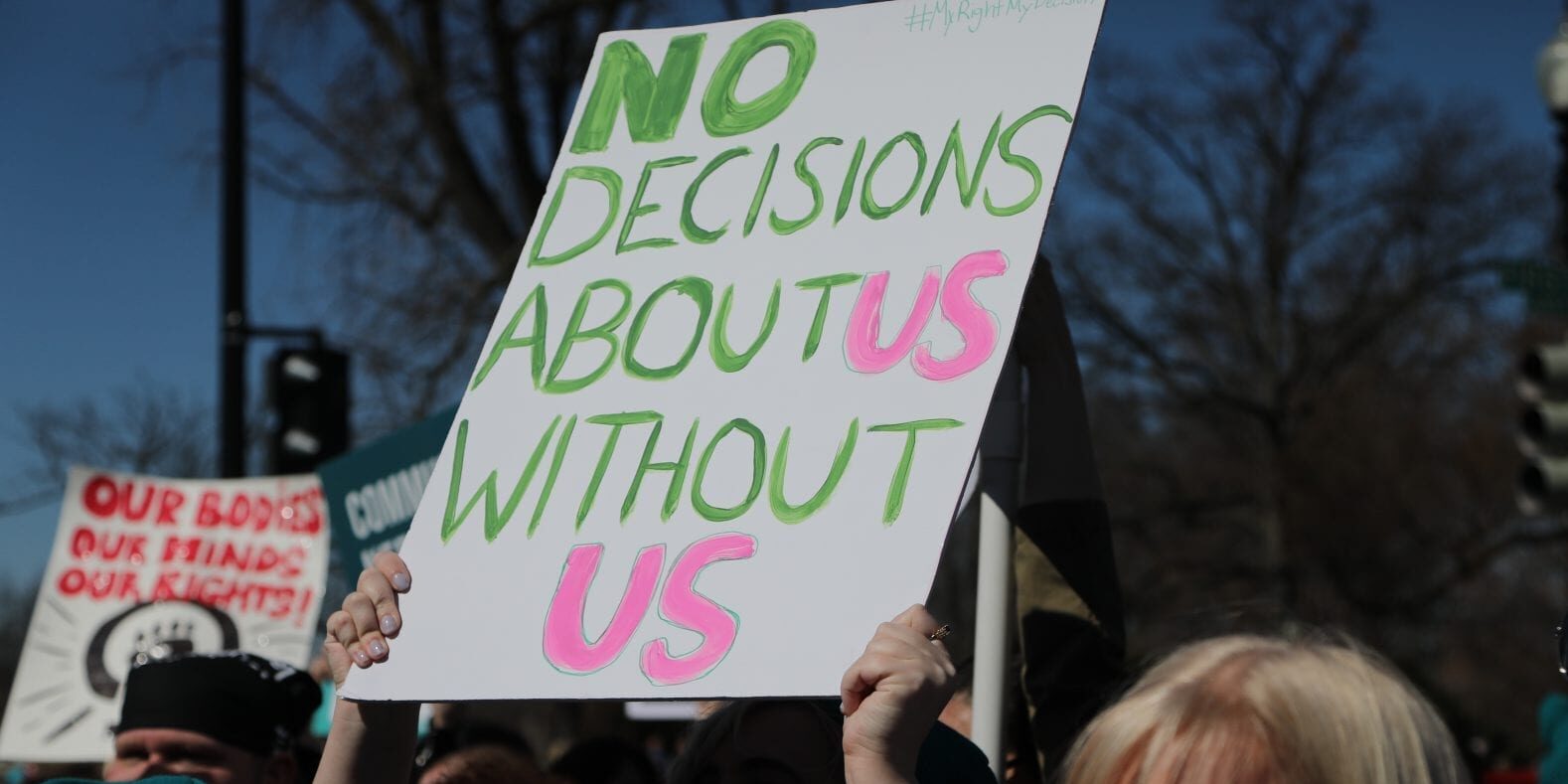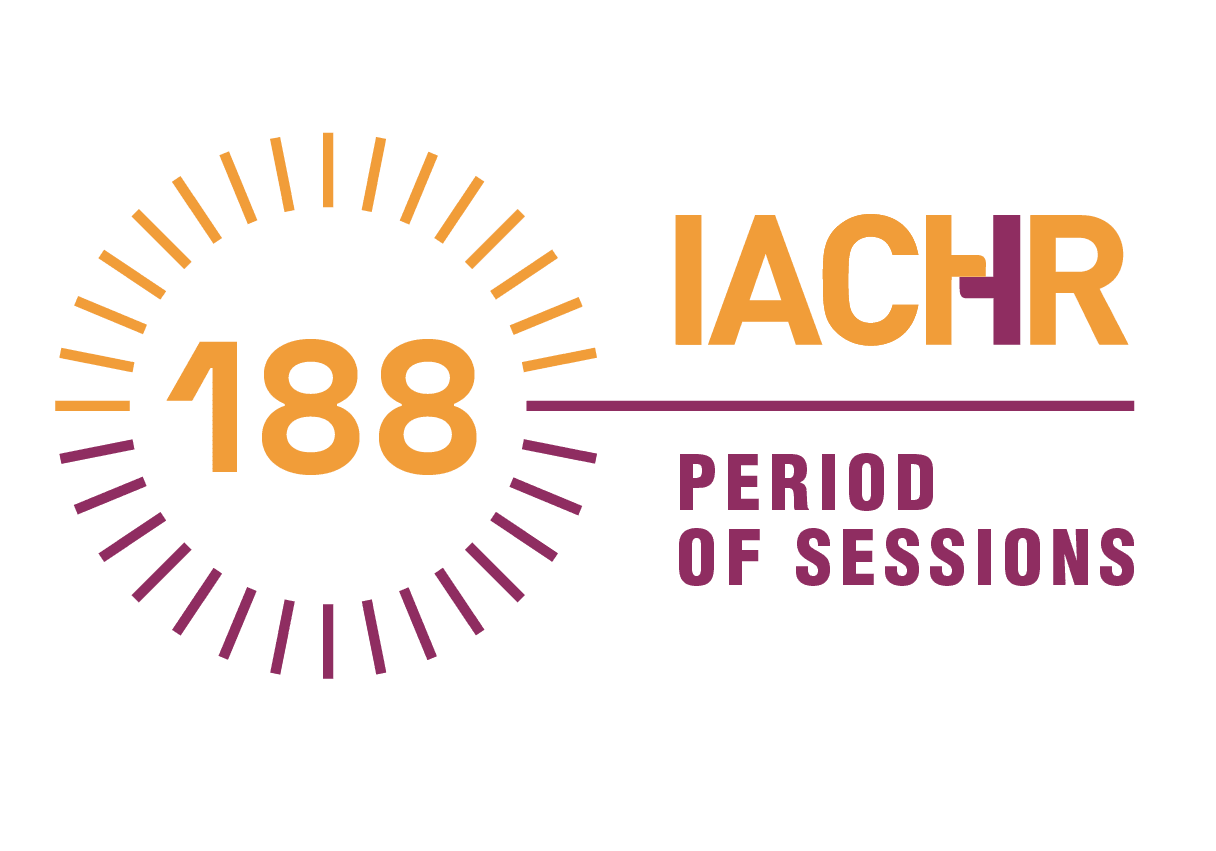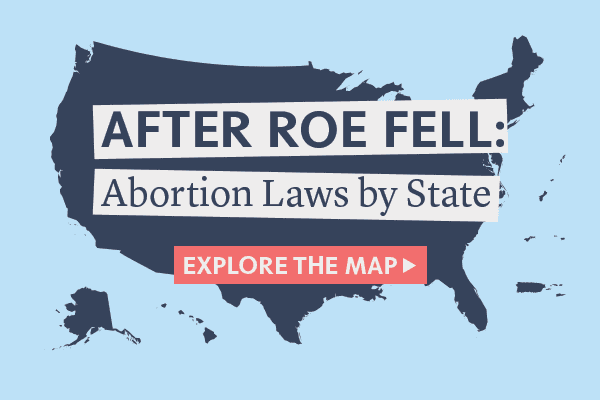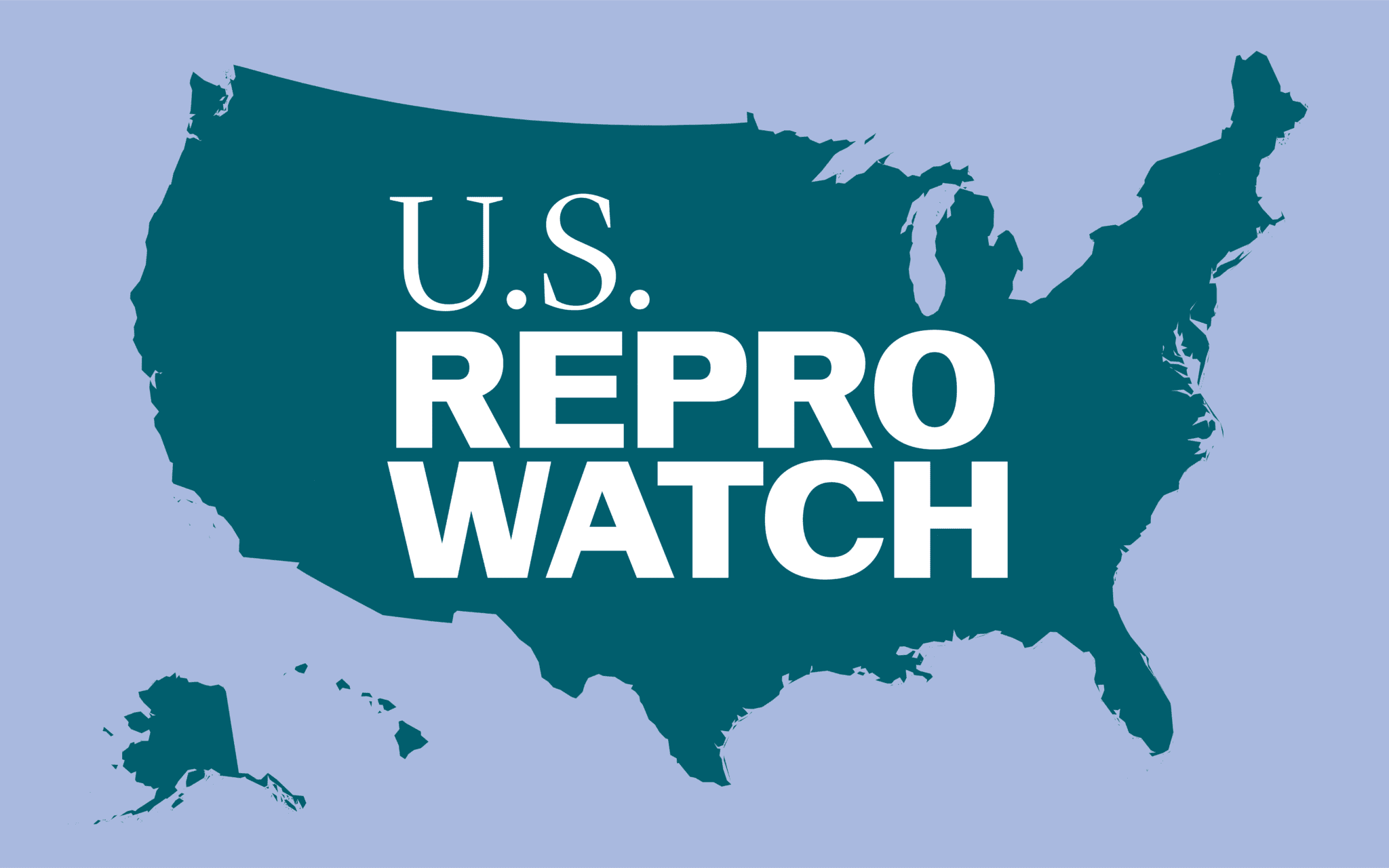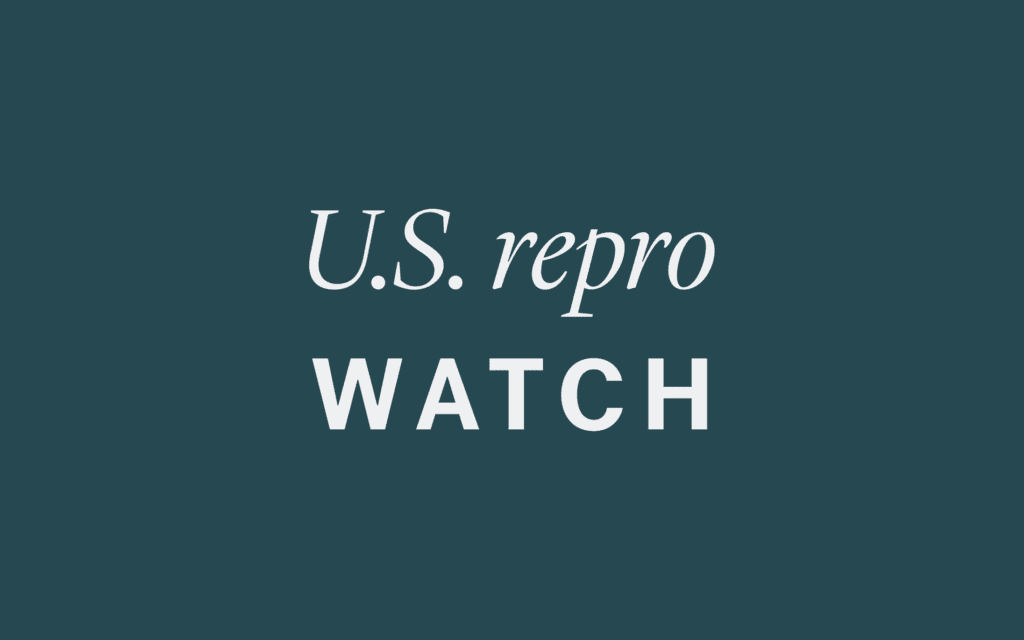U.S. Repro Watch, November 9
Ohioans vote to enshrine abortion rights, the Inter-American Commission examines human rights violations of U.S. abortion bans, Tennessee tries to throw out pregnant women's case, and more news on U.S. reproductive rights.
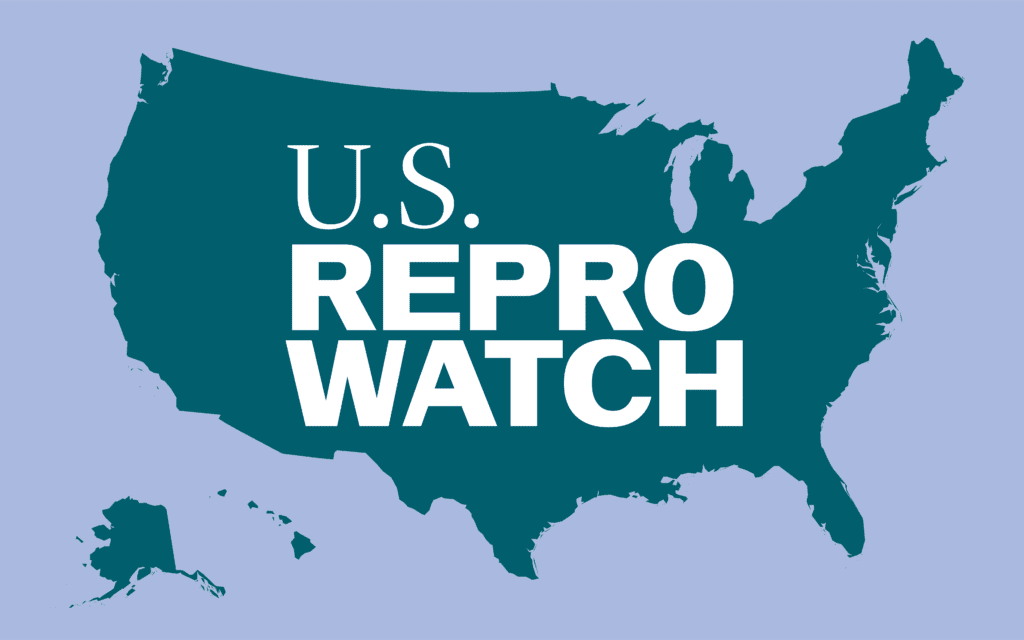
U.S. Repro Watch provides periodic updates on news of interest on U.S. reproductive rights. Here are a few recent items you won’t want to miss:
1. Ohio voters approved an amendment to enshrine abortion rights in the state constitution.
- On November 7 vote, Ohio became the seventh state to vote in favor of abortion since the overturning of Roe v. Wade in 2022. It is also the fourth state since then to approve a proactive constitutional amendment enshrining reproductive freedom in its state constitution.
- The amendment, Issue 1, establishes a state constitutional right to “make and carry out one’s own reproductive decisions,” including decisions about abortion, contraception, fertility treatment, miscarriage care and continuing pregnancy.
- Since the U.S. Supreme Court eliminated the federal constitutional right to abortion, abortion-related ballot initiatives have been on the ballot in seven states—and in all seven states, voters sided in favor of abortion rights.
Read more.
Abortion on the Ballot: Ohio Voters Approve State Constitutional Right to Abortion
Ohio becomes the seventh U.S. state to vote in favor of abortion since the overturning of Roe v. Wade.
2. The Inter-American Commission on Human Rights (IACHR) examined the human rights violations of U.S. abortion bans at a hearing on November 8.
- The Center, along with its partners and a Center plaintiff denied abortion care, provided legal testimony and personal stories about the bans’ harmful repercussions at the hearing, “Healthcare Denied: The Status of Sexual and Reproductive Health and Rights in the United States in the Wake of the Dobbs Decision.”
- The Center and its partners also testified at a separate IACHR hearing about the reproductive health harms of glyphosate and other agrochemicals, which are used widely in Latin America.
- The IACHR, a principal body of the Organization of American States (OAS), promotes and protects human rights in the Americas.
3. Tennessee asked a court to throw out a lawsuit filed by the Center on behalf of women denied abortions in dire situations.
- The state claimed that pregnant people do not deserve the same protection for their lives as non-pregnant people, writing, “Equal-protection limits do not mandate the same treatment of differently situated people.”
- “My fellow plaintiffs and I are asking for the bare minimum—the right to basic health care during the many risky complications that arise during pregnancy,” said Nicole Blackmon, lead plaintiff in the case, Blackmon v. State of Tennessee. “Instead, our own state is trying to pretend that what we experienced never happened. It’s a disgrace.”
IACHR Hearings, November 6-10
For the first time since the U.S. Supreme Court eliminated the constitutional right to abortion, the Inter-American Commission on Human Rights heard testimony on human rights violations of state abortion bans in the U.S.
4. The U.S. Supreme Court heard arguments November 7 on whether the government can protect survivors of domestic violence by temporarily disarming their abusers.
- The Center submitted an amicus brief in the case, U.S. v. Rahimi, arguing that allowing domestic violence perpetrators to carry guns would exacerbate the U.S.’s already colossal maternal and reproductive health and rights crisis.
- Gun violence by intimate partners is a leading cause of U.S. maternal mortality, and studies show that laws prohibiting domestic violence perpetrators from possessing guns reduce homicides of pregnant and postpartum people.
- Learn more about this issue in articles by Tamar Eisen and Diana Kasdan of the Center’s Judicial Strategy team.
5. A Kansas state court blocked several laws mandating disinformation about abortion.
- Siding with abortion providers on October 30, the judge wrote that the restrictions “stigmatize the procedure and instill fear in patients that are contemplating an abortion, such that they make an alternative choice, based upon disproven and unsupportable claims.”
- One of the laws would have forced providers to falsely tell their patients that a medication abortion can be “reversed”—a potentially dangerous claim not based in medicine or science.
- The lawsuit was filed in June by the Center and Planned Parenthood on behalf of Kansas abortion providers.
Where do U.S. state abortion laws stand now?
Where is abortion banned? Where is it protected? Get all the details with this valuable tool.
6. An appeals court unanimously ruled that health care providers in Arizona can challenge a state abortion ban.
- On October 30, a three-judge panel of the 9th U.S. Circuit Court of Appeals reversed a lower court ruling and allowed the challenge to proceed because the providers are harmed by the ban, which prohibits abortions from being performed solely because of a fetal genetic condition.
Did you know?
In a move prompted by the U.S. Supreme Court’s decision to roll back abortion rights, the government of France submitted language for an amendment to enshrine the right to abortion in the country’s constitution. “In 2024, the right of women to choose abortion will become irreversible,” wrote French President Emmanuel Macron. A poll from last year found that 89% of respondents support greater protections for abortion under the French constitution.
U.S. Repro Watch
Read previous U.S. Repro Watch posts.
Coming Up
November 28: Texas Supreme Court Oral Arguments in Zurawski v. State of Texas
- The state appealed an August 4 ruling by a Texas district court judge blocking the state’s abortion bans as they apply to dangerous pregnancy complications. The case was brought by the Center on behalf of Texas women denied abortion care and Texas physicians.
